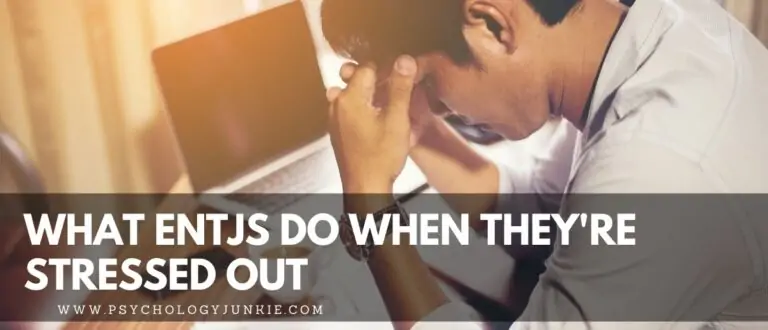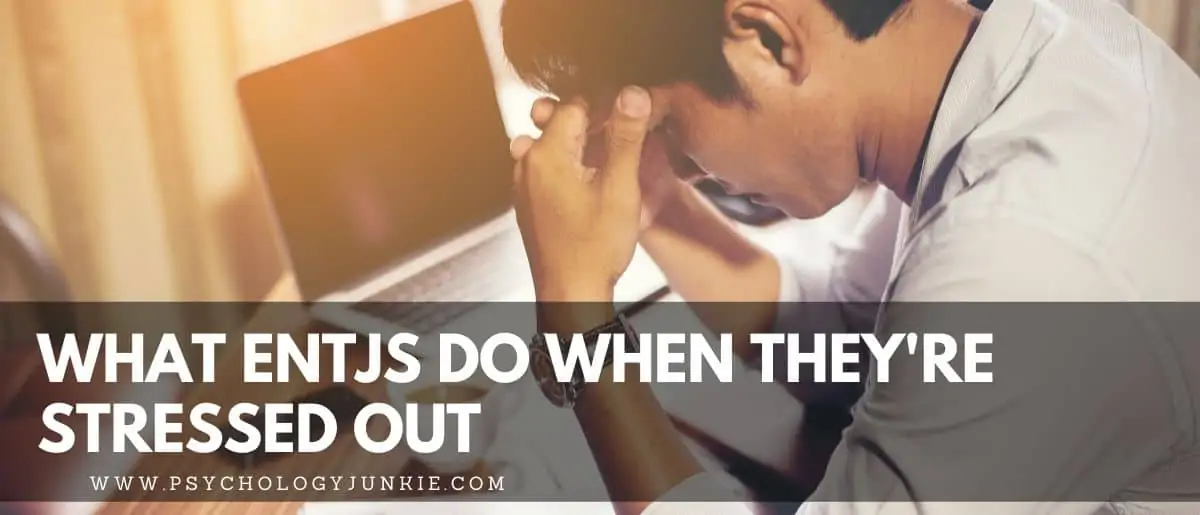How to Approach Someone Who’s Crying, Based On Their Enneagram Type
Witnessing someone in an emotional state can be challenging. You want to offer comfort and empathy but it can be hard to know what to say or how to help. Different Enneagram types experience emotions differently, so it makes sense that approaching them will require different strategies. A Five might run for the hills when they’re crying, wanting not to be noticed, whereas a Four might want a more supportive and listening ear. In this blog post, we’ll explore how to be emotionally supportive to someone when they’re crying, based on their Enneagram type. I hope this helps!
Not sure what your Enneagram type is? Take our free questionnaire here

How to Approach Someone Who’s Crying, Based On Their Enneagram Type
Enneagram 1
Needs: Reminders that it’s okay, and even good, to cry. Someone to listen without judgment. Space to process without feeling self-critical.
Ones work incredibly hard to maintain an appearance that is cool, calm, and collected. But when they do break down, they feel as if they’ve entered their own tailor-made horror movie. Cue the internal freak out. They’re likely mortified and miffed at their momentary loss of composure. If a One starts crying, you can bet they’re plotting their escape route to save face.
Approaching a One in this emotional state is all about staying cool, composed, and supportive. Don’t draw a lot of attention to their emotions, and, please, don’t freak out as well. That will only make things worse. Ones are can-do people, but they often take on too much. Look for some practical way to help out so they can get a break to process their feelings. Take a responsibility off their plate, help them find a quiet place to get away from people, or offer to be a non-judgmental listening ear. If you’re the reason they’re crying, be sure to offer a sincere apology if you’ve messed up. Taking personal responsibility is crucial for anyone in a relationship with a One.
Being emotionally supportive to a One in this state means assuring them that there’s nothing wrong with crying, that it’s perfectly human to feel overwhelmed. Remind them that it’s okay to take a break and breathe. It might be difficult for them to admit they need help, or even accept your help, so if you know something that needs to be done, just do it without having to be asked. Making a little joke about a time when you cried can also be a great icebreaker in this situation.
Find out more about Ones: Escaping the Trap of Resentment for Enneagram Ones
Enneagram 2
Need: Affection, empathy, and words of affirmation. Reminders of their importance and strengths.
Twos: they’re emotionally expressive, but they don’t want to come off as needy. They’re usually the ones offering emotional support, not seeking it. So, being emotional can bring them a lot of shame and vulnerability. The healthier a Two is, the more they embrace this aspect and are willing to ask for help. The unhealthier they are, the more they either hide their vulnerability or use it to manipulate and get a feeling of love or affection in return.
When Twos do cry, either out of frustration or sadness, it’s usually a sign that something has broken their good-natured spirit and that they need a bit of the reassurance and loving devotion that they typically offer others.
The best way to approach an emotional Two is with plenty of compassion and understanding. Acknowledge their feelings, but don’t make a big fuss. Let them know you see how hard they’re trying and how much they care for the people in their lives. Twos are great at giving emotional support to others, so it’s important to remind them that it’s okay to take a break from being the strong one when they need it.
Offer to share in their feelings, and offer an empathetic ear. Show your appreciation for them, and (if they’re the affectionate type) give plenty of hugs and loving words. Let them know that it’s okay to feel whatever they’re feeling and that no one is expecting or wanting them to take on the world all by themselves. Show acknowledgment for all the ways they’ve been generous to others, and that you’d love to be there for them during this tough time (if you actually can follow through – obviously there’s a lot of context here).
Find out more about Enneagram Twos: 21 Signs That You’re an Enneagram 2 Type
Enneagram 3
Need: Some friendly humor to make them feel less vulnerable, reassurance, and some space
When Threes shed tears, they tend to feel like they’ve just shown up in school without their pants on or have just receiving a failing grade on a test. How Threes appear to others is like a red carpet affair for them, especially when they’re at an average or unhealthy level. Maintaining a composed, cool, and capable demeanor is something they put a lot of effort into. So when they do let their emotions flow, there’s often a great deal of shame and embarrassment involved. In fact, it’s as rare as a unicorn sighting to catch them crying without witnessing a simultaneous sprint towards a top-secret hiding spot.
When approaching a Three who is crying, it’s important to keep the conversation light and try to ease the tension around the situation. They may feel ashamed of how they are feeling or embarrassed about being seen as fragile – even if they would never admit it out loud. At the same time, it’s important for Threes to feel safe expressing their vulnerability. This means letting them know that you’re here to listen to anything and everything they’re going through without judgment if they need to talk.
A great way to help a Three in this state is by emphasizing their strengths and capabilities. Remind them that they are powerful and capable of getting through this hard time. Let them know that you feel honored to be able to support them in the process, and that it’s okay for them to not have all the answers or be perfect all the time. And yes, if you know of a private space to get away to with them, all the better.
Average Threes are masters of hiding their vulnerability, but deep down, they need reassurance. Say things like “You’ve got this” or “I’ve got your back.” And if you’re feeling cheeky, share a lighthearted anecdote like “Once I bawled like a baby watching Netflix, talk about embarrassing!” It’ll lighten the mood and make vulnerability less daunting. Just remember, they might need some solo processing time, so give ’em space.
Find out more about Threes: 21 Signs That You’re an Enneagram 3- The Achiever
Enneagram 4
Need: Acknowledgment and validation for their unique feelings. Reminders of their strengths.
Fours: the emotionally savvy individuals who take deep dives into their feelings. They can get swept away by intense emotions, especially the social or sexual Fours. When tears flow, it’s a clear signal that they can no longer contain the flood of emotions and need a release valve. Self-preservation Fours may feel compelled to “tough it out” more, battling against their natural sensitivity. They champion the art of longsuffering and may view crying as a crack in their armor.
Approaching an emotional Four requires finesse and empathy. Absolutely do not rush them or dismiss their emotions. Saying things like “Oh, everyone feels that way” or one-upping them with your own story are never, ever suggested. Give them the time and space to express themselves without judgment. Curiosity is key, so ask about what’s going on in their life and why they’re crying (if they’re up for sharing). Validate their feelings, empathize, and avoid minimizing their experiences. Trust me, Fours despise having their emotions brushed off.
If the Four seems like they need some “me time” (indicated by eye contact avoidance or silent treatment), reassure them they have all the time in the world. Let them retreat to their fortress of solitude!
Fours are in the shame triad of the Enneagram, and often struggle with feelings of melancholy or misunderstanding. Some Fours have said that they feel like they’re constantly auditioning for a role they never quite get. Let them know about the specific ways you appreciate them, and acknowledge their heart in the situation. The Four ultimately wants to be seen and accepted for who they really are; warts and all. Showing you’re someone who can do that is extremely validating for them. And if they’re a self-preservation Four trying to keep it together, remind them that even superheroes shed a tear or two.
Find out more about Fours: The Enneagram 4: The Individualist
Enneagram 5
Need: Space to get alone and process. A calm reminder that you’re there if they need to talk (no judgment involved)
Fives, the masters of emotional secrecy! They prefer to keep their feelings under wraps, so it’s rare that you’ll see one publicly having a breakdown. It’s like finding a hidden treasure! They’ll probably be scrambling for a hideout, desperate to avoid such vulnerability. But hey, we all have our moments! 🙈
When a Five cries, it’s important to be gentle and non-intrusive. Don’t badger them with questions or try to pressure them into talking about what’s wrong. Just validate their feelings and reassure them that you’re there for support if they need it. When dealing with a Five, less is more! Be sincere in your words. Ask if they want help, if they want to talk about it (odds are, they’ll decline, but you never know), and assure them you’re just one call/text away if they need anything. Offer quiet but present emotional support (this can be as simple as just sitting with them and holding their hand), but start by asking if they’d prefer to be alone.
Respecting the Five’s need for privacy and personal space is crucial, because let’s face it, they need their alone time like a fish needs water. When they’re crying, don’t take it personally if they want to be left alone. Let them know you’re there to lend an ear whenever they’re ready, but please do not push it. When you see them again, don’t bring up the emotional breakdown. Just be a good friend and remind them that you’re there if they ever need to talk.
Find out more about Fives: The Enneagram 5: The Investigator
Enneagram 6
Need: A chance to verbalize their worries and anxieties and reminders of support and loyalty
Sixes are in the fear triad of the Enneagram, and they are often the ultimate worrywarts. Their minds conjure up worst-case scenarios like it’s a full-time job. When they finally break down and cry, you know it’s been a long time coming. So, what’s the best remedy for their anxious souls? A dose of gentle support and reassurance to calm those racing thoughts!
When you see a Six crying, try to remain calm and collected. They may be looking for someone to make sense of what’s going on in their head, so do your best to comfort them without pushing your own agenda. Let them vent about their worries or their hurts and don’t try to argue with them or give advice in the heat of the moment. Later on when things have calmed down you can ask them if they’d like any advice or feedback; but in the heat of the moment just try to be the calm to their storm.
Some Sixes may think that showing their fear is a sign of weakness. Remind them that it’s absolutely fine to be scared or uncertain. You can also reminisce about those times they conquered similar challenges in the past. This is hugely encouraging to them! If they’re up for it, suggest soothing ideas like jotting down their thoughts in a journal or indulging in some well-deserved self-care. Now, here’s the thing: Some Sixes worry that revealing their emotions will make others look down on them or (in their worst-case scenario mindset) even ditch them. If that’s the case, reassure them how much you care and that you’ve got their back, no matter what!
Discover more about Enneagram Sixes: The Enneagram 6: The Loyalist
Enneagram 7
Need: A safe space to be vulnerable without judgment (and maybe a little humor thrown in to lighten the situation)
Sevens, the Energizer Bunnies of the Enneagram! With a boundless curiosity and enthusiasm, they conquer the world. But hey, even superheroes have their off days. When emotions take over, crying becomes an epic battle. They either dodge it like a pro or surrender in an intense, dramatic fashion.
When a Seven is shedding tears, be their emotional sidekick without pushing them away. Let them know you’re their venting partner and that you won’t judge their roller coaster of feels. Sevens may spew half-baked thoughts, so hold off on critiquing in the heat of the moment. Reassure them they’re not stranded and it’s totally alright to have a well-deserved breakdown!
If you can, try to inject some humor into the conversation and crack a few jokes – this can help Sevens to feel less overwhelmed.
Sevens find it hard to stay focused on their emotions for too long. While it’s important for them to process their feelings, sometimes they just need a little distraction – and that’s alright, as long as it’s not their go-to every single time they’re struggling. Encourage them to take a breather and indulge in something that brings them joy, like going for a walk, playing a game, jamming to their favorite tunes, or watching a hilarious movie. You could even lend a hand with a boring task (like doing the dishes) to give them some space to process their emotions. Sevens despise boredom, so they’ll be extremely grateful for this act of service!
Find out more about Sevens: 7 Struggles of the Enneagram Seven Type
Enneagram 8
Need: Space and freedom to vent or a pillow to punch
Eights, the fierce warriors in the anger triad of the Enneagram, may scare you when they’re upset. Vulnerability is not their style, so they’ll transform sadness into anger or try to vanish from curious eyes.
When an Eight sheds tears, they usually crave space above all else. Seek a room of solitude for them, where they can lock the door and have their moment. You can still offer support without invading their personal space. If they desire company, they’ll let you know. If not, retreat and give them the freedom to process their emotions in their own way. Eights like to appear like they’ve got everything under control and they are strong and capable; crying often feels overwhelming or like weakness to them. If they look like they could use the emotional support of your presence, just stay cool and casual. Don’t badger them with questions or coddle them. They don’t want to feel like a baby! Sometimes just saying “I’m here for you and I want to be here for you. But I can go if you need me to” is the best thing.
If an Eight redirects sadness into anger or fury, it might be best to give them some space until they cool off. Engaging in an argument or being overly sympathetic will only exacerbate the situation. You could offer them a punching bag or a scream room if they’re the type who likes to unleash their anger. But remember, it’s time to exit stage left if the Eight starts getting hostile.
If the Eight you’re trying to help hasn’t made a daring escape to their secret lair (and isn’t causing explosions), just ask if there’s a practical way you can lend a hand. Just remember they may be too flustered to verbalize what they need. You could simply bring them a snack, a punching bag, or a drink of ice water. Give them the green light to vent if needed, assuring them it’s a therapeutic way to let it all out without any judgment on your part. Eights carry a lot on their own, and at their best they are some of the most noble and protective people you’ll ever meet. When they’re having a rough day they need to know that it’s okay to get help and support.
Discover more about Eights: The Enneagram 8: The Challenger
Enneagram 9
Need: Acceptance and a Gentle, Non-Intrusive Presence
When Nines feel overwhelmed and start crying, they need a gentle and reassuring presence. They often prioritize others’ happiness, neglecting their own feelings and passions. If you catch a Nine crying, it’s an opportunity to be their support and an open-minded listener.
To help a Nine in such moments, be their anchor of stability and security. Let them know you’re their unwavering support. Choose your words wisely – too much advice or criticism will push them further into retreat. Validate their feelings, but avoid overwhelming them with questions or critiquing their emotions. Sometimes Nines just need someone to sit quietly with them while they figure out what to do next.
Sometimes, Nines appreciate having their own little emotional processing bubble. Assure them that you’re there to lend an ear or offer assistance, but no need to play the “talk about it now” card. Other Nines crave a gentle distraction. Take a stroll together, soak up the fresh air, and let those endorphins work their magic. Nines love being in nature or being reminded about the good and beautiful things in the world. Sometimes just sitting down in a beautiful spot is enough to bring them a little bit of peace.
Nines can be quite stubborn when it comes to accepting help, but even they need some support! It’s not just okay, it’s vital for their emotional well-being. Surprise them with a thoughtful act of kindness, like bringing them a delicious meal or babysitting their kids so they can have a breather. Trust me, they’ll be extremely grateful (especially since they didn’t have to ask!)
Find out more about Nines: Seven Struggles of the Enneagram Nine
What Are Your Thoughts?
We all have days when we struggle to not let our emotions get the best of us. Helping someone who’s crying is one of the most selfless acts you can do for another person, and it’s especially important that you tailor your approach to fit their Enneagram type. Although there are some universal techniques that work for everyone, understanding how each type deals with their feelings can make a huge difference in how you help them.
What do you like best when you’re feeling sad? How do you like to be comforted? Let us and other readers know in the comments!
Other Articles You Might Enjoy:
How Each Enneagram Type Guards Their Heart
What Your Inner Child Needs to Hear, Based On Your Enneagram Type
How You’re Sabotaging Yourself, Based On Your Enneagram Type













